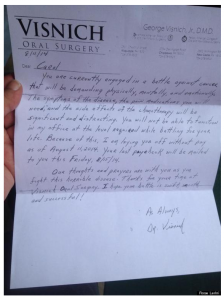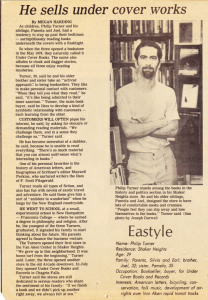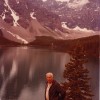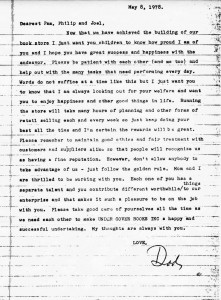I love it when I find unexpected correlations and thematic continuities among the books I’m reading, especially when there are really no circumstantial connections among the authors and the books.
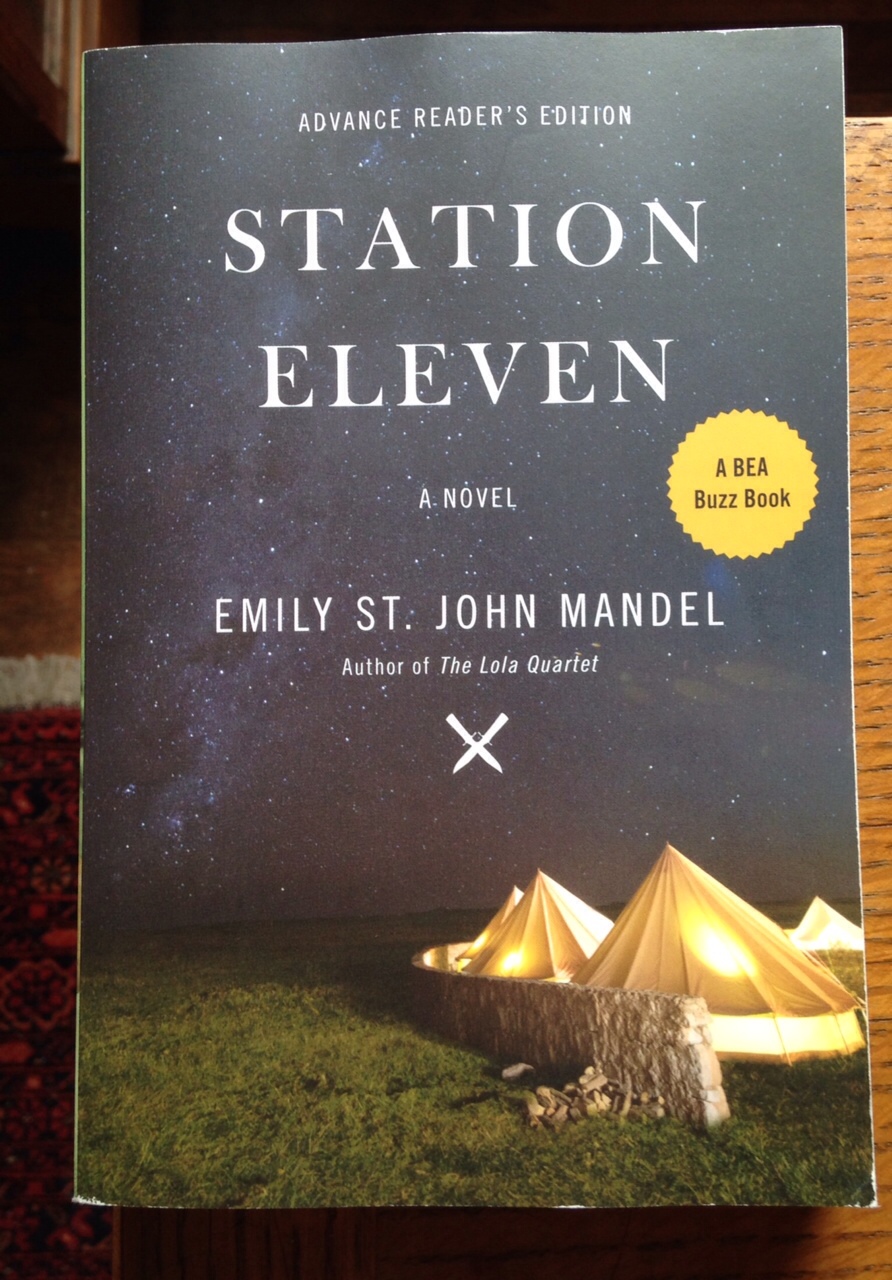
I’m traveling these twelve days (August 7-19) from NYC to St. Louis to Chicago to Cleveland and back to NY, and so have a number of good books with me. First book I finished during the trip was Emily St. John Mandel’s wistful Station Eleven, a post-apocalyptic novel set in a future that might be not too distant from our own, when a deadly flu has driven the world’s inhabitants in to a tenuous existence, with familiar communities splintered and new ones reconstituted around survival, with safety from brigands and cults their paramount goal. Grim as that may sound, it’s really a sweet book as Mandel uses flashbacks to skillful oscillate between the pre- and post-disease worlds, devoting much of the narrative to memorializing things we’d miss from today if the world suddenly fell in to chaos. Amplified music, electric guitars, buying gas at the pump, surfing the Internet, ordering a meal in a restaurant—these are a handful of the quotidian details suddenly subtracted from the lives of her characters. She imagines that surivivors have retrofitted automobiles and trucks so that, in the absence of petrol, they can be pulled by horses. In fact, the symphony/theater troupe at the center of the story moves itself in the Lake Michigan region this way, with musicians and players in tow, and young or vulnerable members stowed in the back, in what I imagine as modified Conestoga wagons supplying cover.
Prior to Mandel’s novel, which will be published next month, I was reading Nevil Shute’s On the Beach, a post-nuclear event novel published in 1957. I met Mandel in July, at a Fall Book preview sponsored by NAIBA, and mentioned Shute’s book, which she told me she hadn’t heard of was. It’s set in Australia, after the Cold War nations have traded atomic bomb attacks, leaving the world above the equatorial line a death zone. An Australian submarine crew is tasked with traveling, submerged beneath the ocean, to assess the radioactivity of the post-incident world and determine if there might be habitable zones elsewhere. Shute’s novel is told in a measured, even laconic style, a bit less literary than Mandel’s. Like her though, he imagined that the inhabitants of his wrecked world would need some mode of land transport, and so they’ve retrofitted their cars and farm vehicle so they can be pulled by horses.
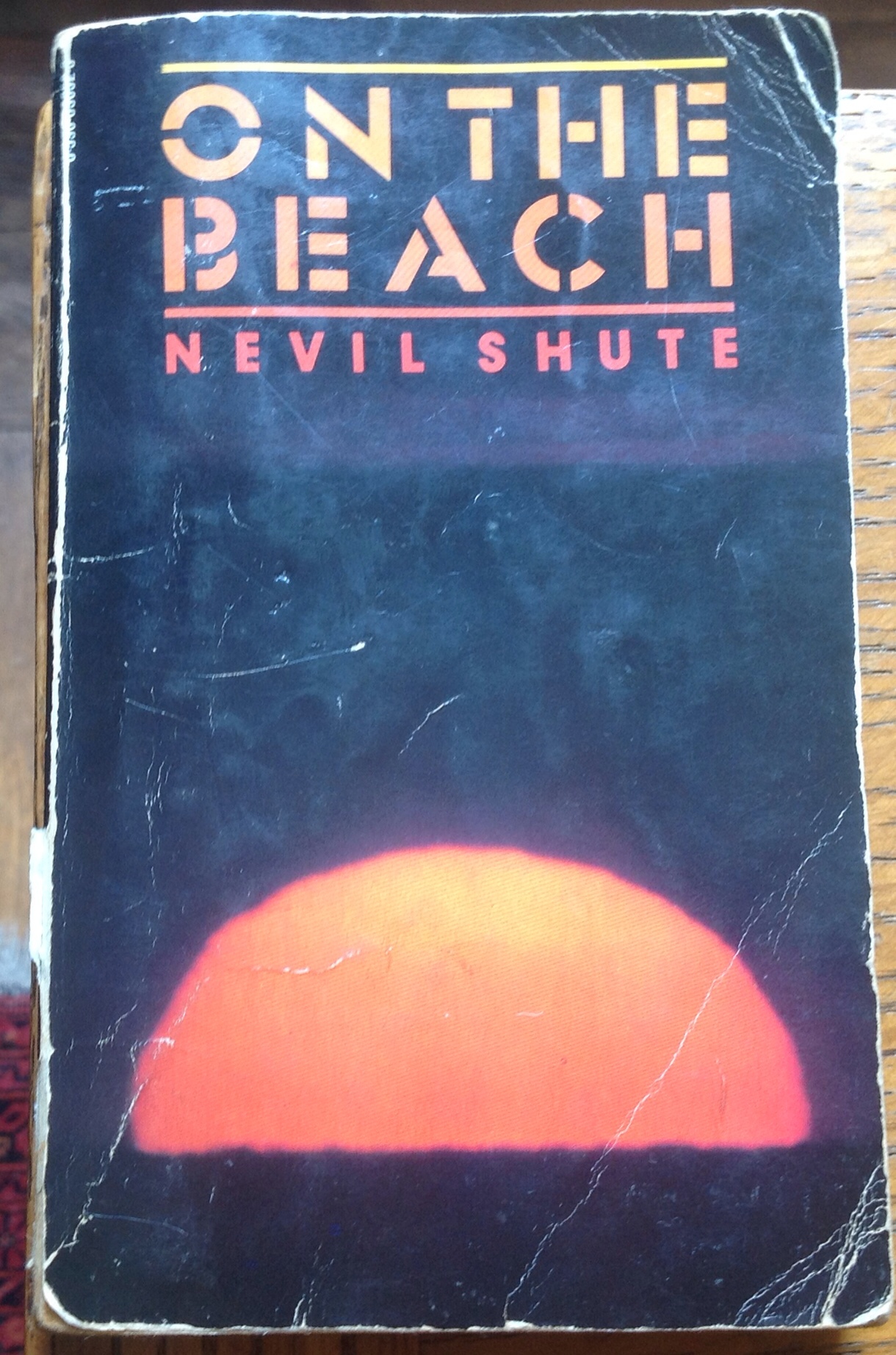
Now it’s not surprising that the authors of two post-apocalyptic novels would each employ common elements, like the retrofitted vehicles. What’s more surprising is when the author of two entirely unrelated books—one historical nonfiction, the other a thriller—share a thematic unity.
While reading Mandel’s novel I’d also been enjoying Alexander Rose’s Washington’s Spies: The Story of American’s First Spy Ring, a history of espionage during the Revolutionary War published in 2006 that’s the basis of the current AMC TV series, “Turn,” which I had made one of my #FridayReads last month. It’s fascinating, and using the letters that General Washington’s spies sent to him, covers aspects of American’s war with Britain that are entirely new to me. One of these side stories is how the British army flooded Boston, NY, and Philadelphia with “hundreds of thousands of fake dollars,” counterfeit money they hoped would undermine confidence in Colonial currency, reduce its value, and motivate local populations to avoid using it.
According to Rose, British generals arranged for prolific counterfeiters from English prisons to be released, who were then pressed in to service printing bogus dollars, some of them with their engraving tools and printing presses aboard ships floating in New York harbor. Rose writes that disinformation efforts were undertaken with “Royalist papers like…New York Gazette and Weekly Mercury print[ing] public ‘editorials’ noting, by the by, that ‘there has lately…been a large distribution in the country of counterfeited Continental bills, so admirably executed, as not easily to be discerned from those issued by order of the Congress. This has contributed not a little to lower their value, and will be one effectual bar to their repayment or liquidation.'” Rose even discovered that classified ads were run in some papers, seeking people who would be willing to pass the currency in Colonial cities.
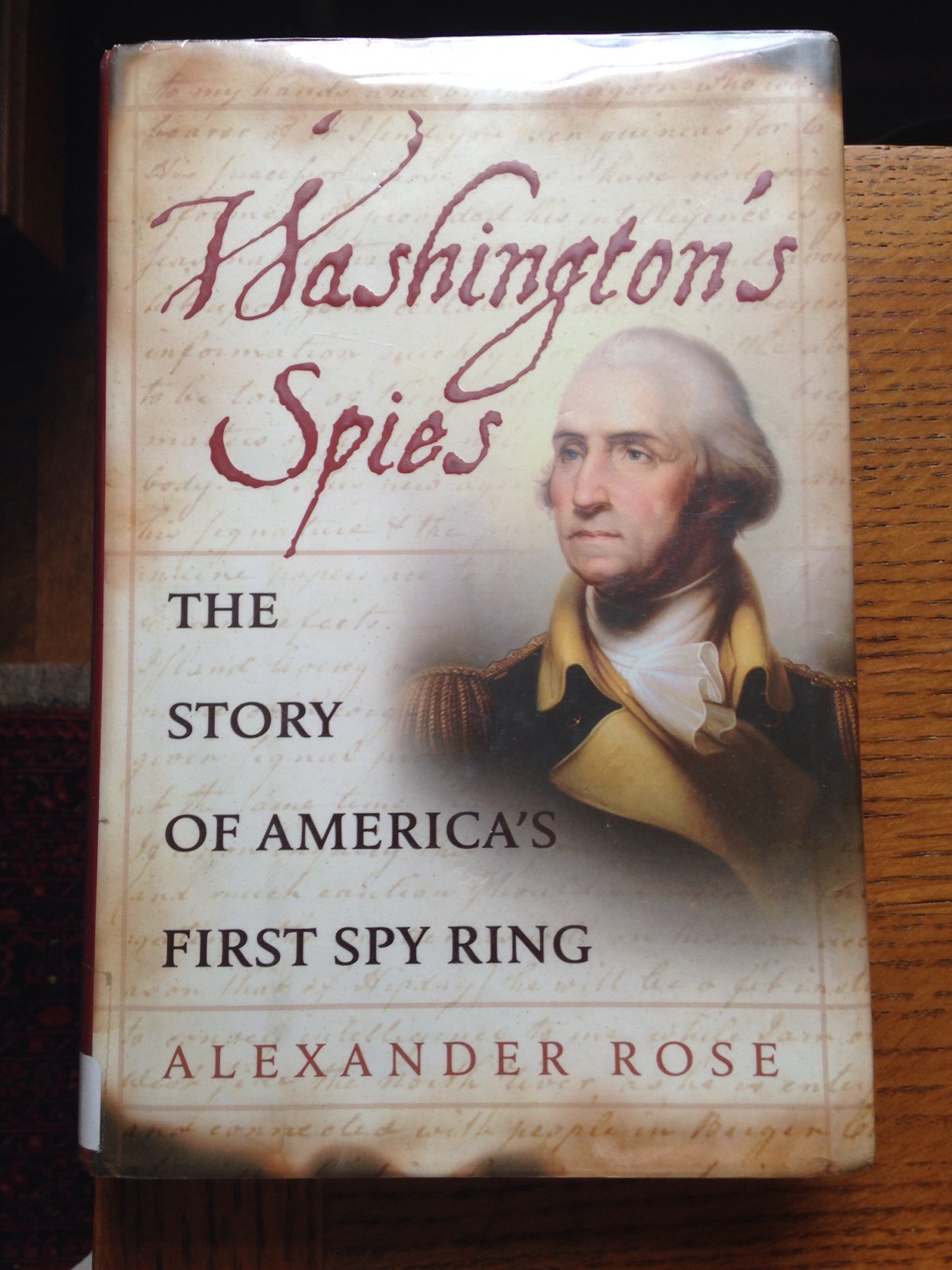
While still reading and enjoying Washington’s Spies I was ready for another novel to read, and so browsing in Left Bank Books, St. Louis’s well-known indie bookstore, last weekend, I was delighted to discover that the very first Jack Reacher suspense novel, by Lee Child had been reissued. I love the Reacher novels, an enjoyment that only grew after meeting him at a book party for Valerie Plame’s first novel in October 2013. The only reason I sometimes hesitate in picking up a Reacher novel is that I often can’t recall which ones I’ve already read. But I knew I hadn’t read Child’s inaugural entry, from 1997, so was happy to buy it that day, especially as it included a new preface by Child, explaining how he came to create the character of Jack Reacher, a former MP in the US Army who since leaving the service has lived a rootless life, rambling from town to town, and inevitably, encountering bad guys in his path, harming innocents whom he chooses to protect. It’s called Killing Floor and with lots of leisure time the past week, I’m deep in to it now. The plot centers around Margrave, Georgia, a small town that Reacher drifts in to, idly, in search of the legacy of a bluesman named Blink Blake who his brother Joe, his only living relative, once told him had spent time in Margrave. After only a few hours in town, Reacher is arrested on suspicion of murder, and even though he’s quickly cleared in the case, his sense of moral indignation is aroused when he glimpses all the corrupt things going on in the town, so he sticks around to try and straighten things out.
Imagine my surprise when in my reading I discovered that the rotten underside at the heart of the story is a counterfeiting ring that his brother, a federal agent, had been investigating. At one point, Reacher meets an elderly professor who tells him of his own countefeitiung exploits, though more of the wartime Washington’s Spies sort than the typical criminal kind, bearing more than a passing resemblance to that done by the British against the Colonies: “During the Second World War, young men like…me ended up with strange occupations….Considered more useful in an intelligence role than in combat….We were handed the job of attacking the enemy with economics. We derived a scheme for shattering the Nazi economy with an assault on the value of its paper currency. Our project manufactured hundreds of billions of counterfeit reichsmarks. Spare bombers littered Germany with them. They came down out of the sky like confetti.”
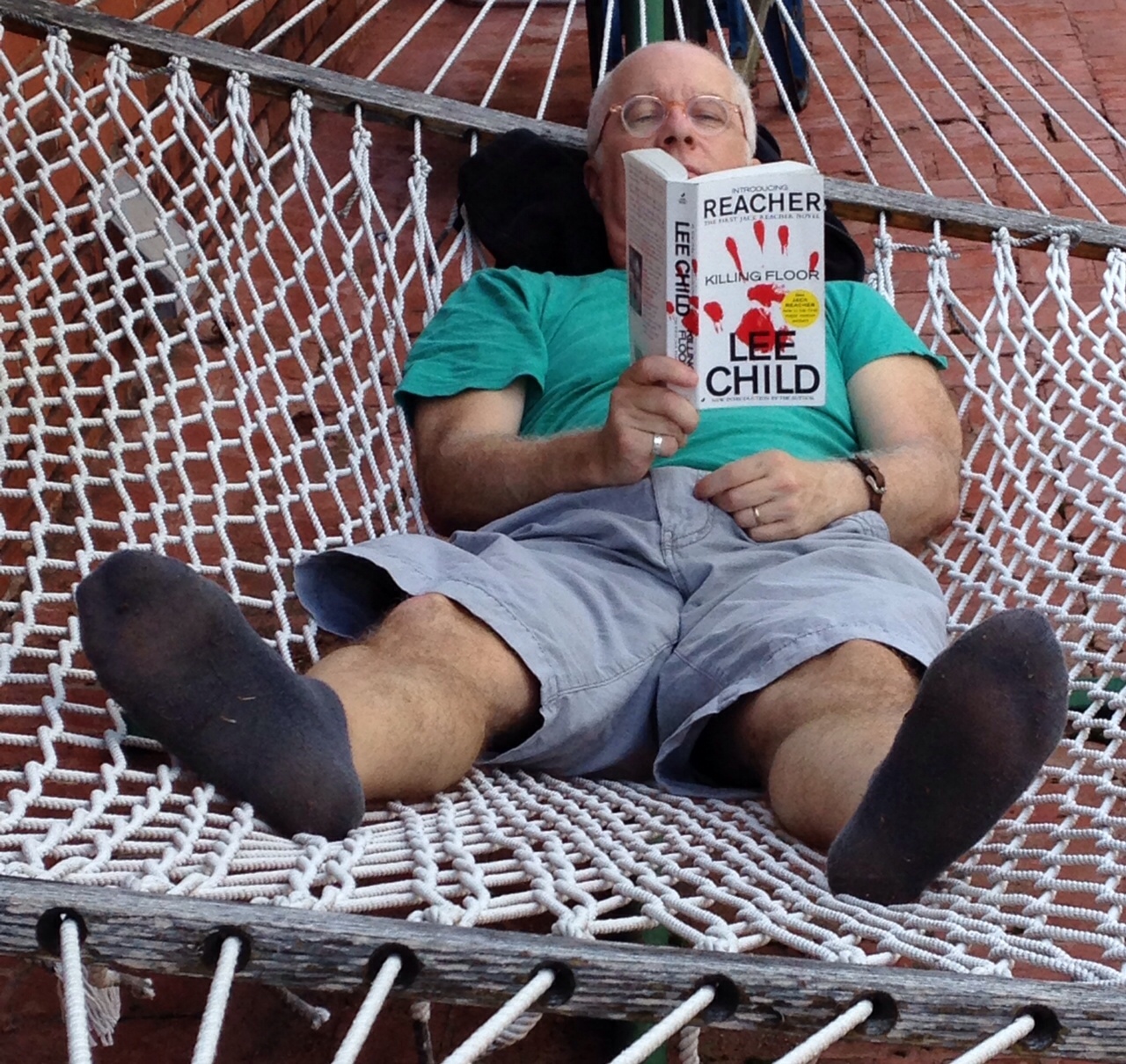
The congruities among historical events described in Alexander Rose’s history of Revolutionary War espionage and Lee Child’s contemporary thriller are pretty striking, aren’t they?
[NB: This post was written in the excellent Blogsy app on my iPad on an Amtrak train traveling from St. Louis to Chicago.]
